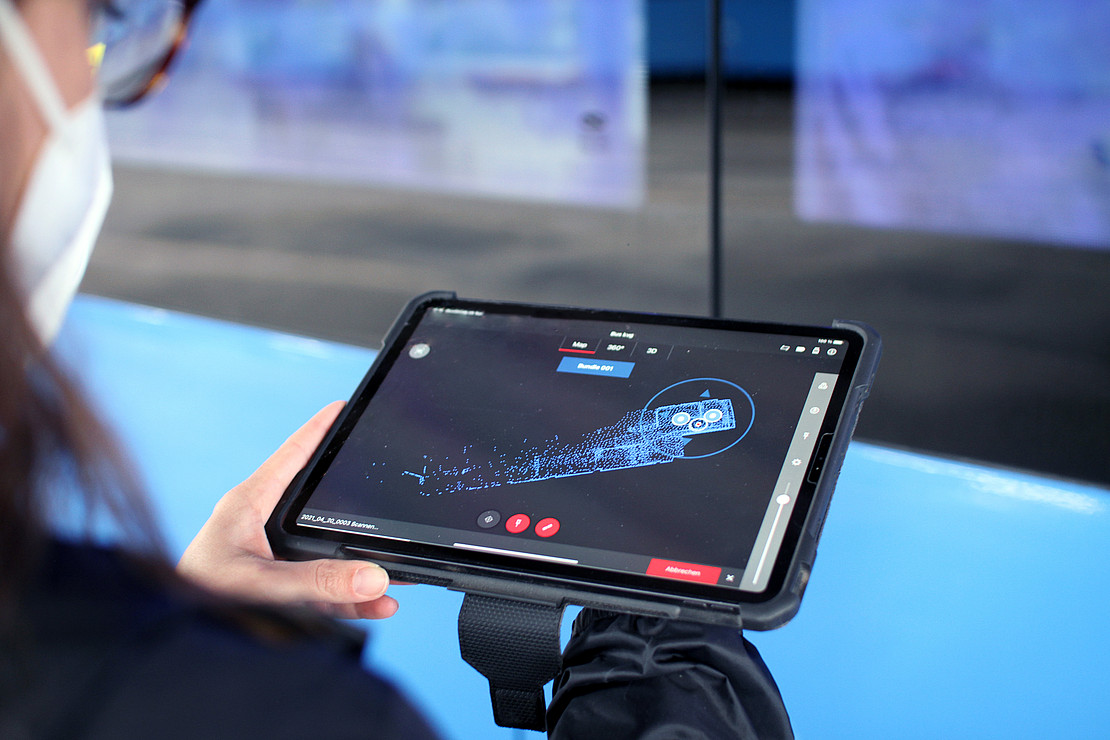This page contains automatically translated content.
Pandemic risk in local transport easy to control
 Image: FG Traffic Planning
Image: FG Traffic PlanningA Research Group led by Kassel transport scientist Prof. Dr.-Ing. Carsten Sommer has simulated the distribution of aerosols in a bus and a train compartment and calculated the risk of infection. Under unfavorable conditions (incidence of 1,000, poor ventilation, full vehicle, no one wearing a mask), the risk of infection for a 20-minute journey is around 3 percent. However, if the ventilation is set to a high level and an FFP2 mask is made mandatory, the risk drops significantly to less than 0.1 percent.
This is not only due to the filter effect of the mask: it also changes the air flow and instead of landing in the face of the person opposite, the air flows vertically upwards and is discharged more quickly through the ventilation, according to the results of the research project, which were presented today (March 20) in Kassel. "In addition to wearing masks, the most effective way to minimize aerosol dispersion is to set the ventilation to a high level. This is what distinguishes public transport from enclosed spaces," says Sommer.
Another lever is a staggered start to lessons in a city's schools, which reduces the load on public transport at peak times. In a field test in the Westphalian city of Herne, this measure reduced the risk by almost a fifth, "and at no extra cost", as Sommer emphasized.
The researchers also asked around 1,000 representatively selected people from Kassel for an estimate of the risk of infection. This revealed that people estimated the risk of infection to be significantly higher on public transport than in other everyday situations, such as when shopping in the supermarket.
In response to the coronavirus pandemic, the Federal Ministry for Digital and Transport commissioned the Kassel-based Research Group to investigate how public transport can become more resistant to pandemics and epidemics. It is funding the EMILIA research project for three and a half years (January 2021 - July 2024) with around 1.3 million euros.
Further information can be found at http://www.uni-kassel.de/go/EMILIA
The recommendations for action for the public transport industry and politicians will be published shortly.